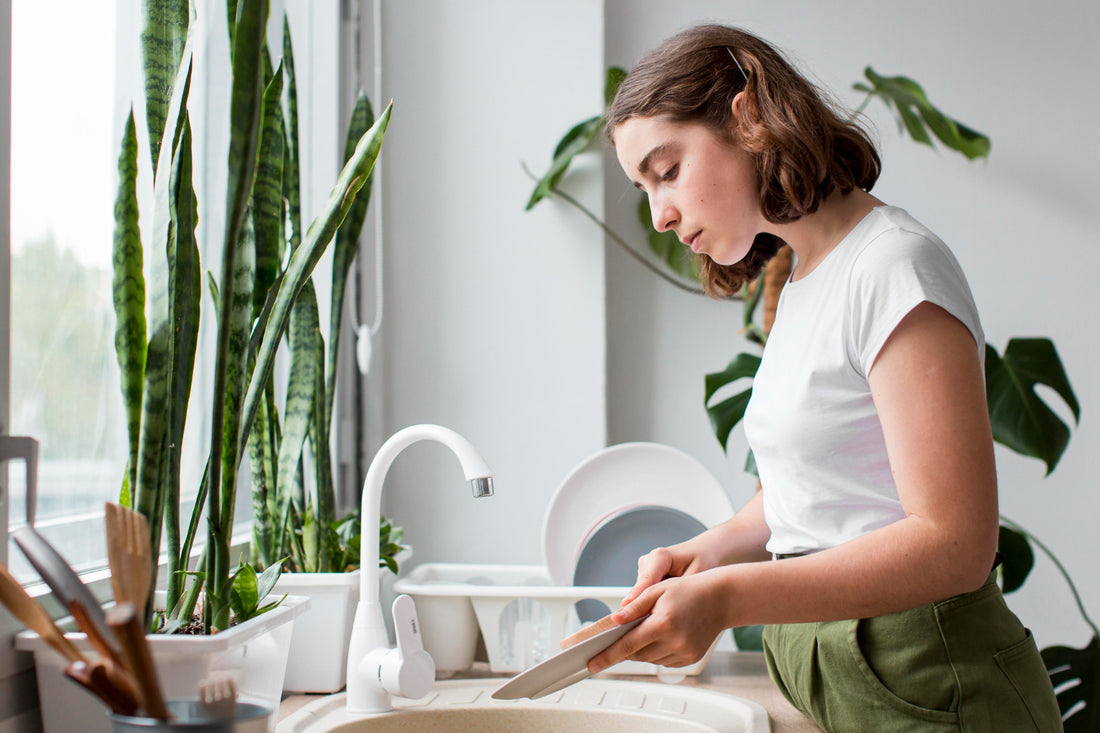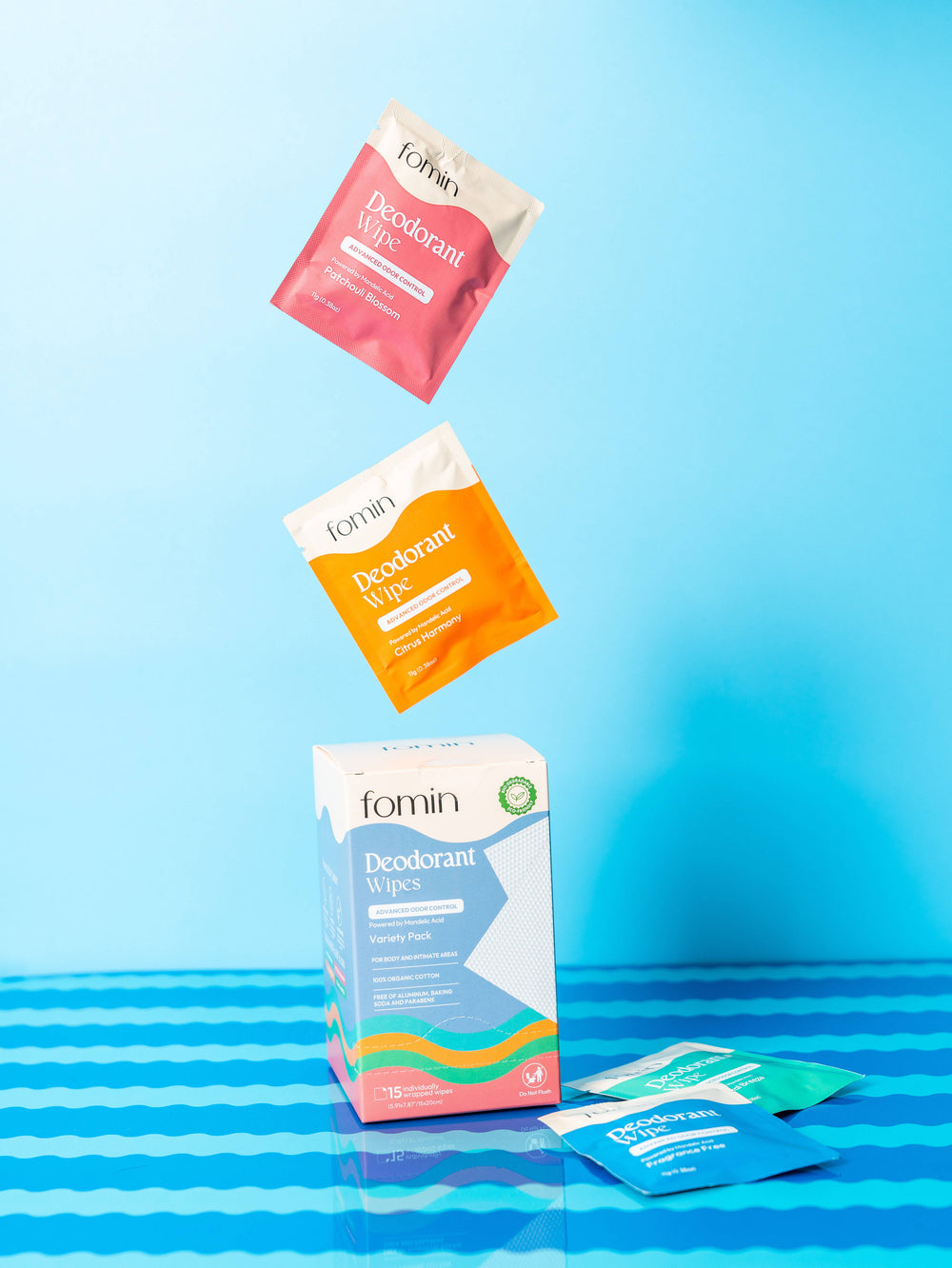
How to Reduce Your Carbon Footprint with Simple Bathroom Swaps
Share
There are little choices and changes you make to change your lifestyle to a sustainable one. To start such changes, the bathroom is one of the perfect places to begin reducing your carbon footprint. From swapping out plastic products to opting for more eco-friendly cleaning solutions, making a few simple changes in your bathroom routine can significantly decrease your environmental impact. Here are a few Eco-friendly bathroom tips that will help you make a big difference.
Switch to Eco-Friendly Personal Care Products
One of the biggest sources of waste in bathrooms is single-use plastic. Many personal care items, from shampoo and conditioner to body wash, come packaged in plastic bottles that are difficult to recycle. Try swapping out these products with plastic-free bathroom essentials like:
Solid Bars
Consider bar shampoo and conditioner bars instead of bottled versions. These often come in minimal or compostable packaging, and many last longer than liquid options.
Reusable Containers
If you prefer liquid products, look for brands that offer refills or buy in bulk to reduce waste.
Natural Ingredients
Choose personal care items made from natural, biodegradable ingredients. Avoid chemicals like microbeads and synthetic fragrances that can harm the environment.
Use a Bamboo Toothbrush
Plastic toothbrushes contribute to millions of tons of waste each year. A bamboo toothbrush is a great alternative not just for home but also for travel enthusiasts. This is because bamboo is fast-growing, renewable, and biodegradable. You can compost the handle of a bamboo toothbrush - after removing the bristles - instead of sending it to a landfill.
Opt for Reusable Cotton Pads or Eco-Clean Towels
If you use cotton pads to remove makeup or apply skincare products, consider switching to eco-clean towels. Disposable cotton pads are often bleached and can contain synthetic fibers, contributing to pollution when they’re discarded.
On the other hand, reusable pads or eco-clean towels can be used multiple times, saving both money and resources. Many reusable cotton pads are made from organic materials, which are better for your skin and the planet.
Choose Recycled or Bamboo Toilet Paper
Standard toilet paper is often made from virgin paper, meaning trees are cut down specifically for production. Instead, opt for recycled toilet paper or bamboo-based alternatives. Recycled toilet paper minimizes the demand for new materials, reducing the environmental impact.
Similarly, for cleaning toilet bowls use flushable toilet cleaner strips that are eco-friendly, carbon-neutral, and perfect for eco-conscious families.
Ditch Single-Use Razors for Reusable Options
Single-use razors are convenient but wasteful, with billions ending up in landfills annually. Made from durable metals, safety razors last much longer than disposable versions and only require you to replace the blade. While the initial cost may be higher, the safety razor is a great initiative to reduce the carbon footprint in bathrooms.
Use a Water-Efficient Showerhead and Shorten Shower Time
Water conservation is essential for lowering your environmental footprint. Installing a water-efficient showerhead is a simple yet effective swap that can save thousands of gallons of water each year. In addition, try to keep your showers to five minutes or less. A shorter shower not only conserves water but also reduces energy consumption if you’re using heated water.
Make the Switch to Eco-Friendly Cleaning Products
Many traditional bathroom cleaners contain harsh chemicals that can be harmful to both your health and the environment. Opt for sustainable bathroom swaps that are made from natural, non-toxic ingredients.
You can even DIY eco-friendly cleaning solutions with simple ingredients like baking soda, vinegar, etc. These solutions are effective, affordable, and free from dangerous chemicals that can harm the environment.
Choose Refillable Products and Sustainable Packaging
Plastic packaging is a major environmental concern in the personal care industry. When we shop bathroom products they mostly come in plastic packaging. To reduce this packaging issue, you can go for refillable products or a brand that offers compostable packaging like Fomin for their products.
Use a Bidet or Bidet Attachment
A bidet can be a game-changer for reducing toilet paper use. By using water to clean instead of paper, you can cut down significantly on toilet paper waste and save trees. Many bidet attachments are easy to install, affordable, and can help you reduce your paper consumption by up to 80%.
Reduce Electricity Use with LED Bulbs and Natural Light
Switching to LED light bulbs in your bathroom can help you save energy and reduce your carbon footprint. LED bulbs are more energy-efficient than traditional incandescent bulbs and last much longer. Additionally, make the most of natural light in your bathroom to minimize electricity use.
Final Thoughts
Adopting these eco-friendly bathroom tips in your bathroom routine can have a big impact over time. Remember, every small change counts when it comes to reducing your carbon footprint—so start with one swap and build from there. Sustainable living doesn’t have to be complicated; it can start right in your bathroom. Try Fomin products today to learn that you don’t have to compromise on quality for sustainable living.
Building a Plastic-Free Future: Fomin's Commitment to Driving Sustainability
In an era where plastic pollution has become an alarming global issue, it is crucial to seek innovative solutions to reduce its devastating impact on our oceans and ecosystems.
Annually, an astounding 8 million metric tons of plastic waste goes into our oceans, endangering marine life and the sensitive equilibrium of biodiversity on Earth. Fomin, a pioneer in sustainable initiatives, has driven the movement toward a plastic-free planet.
By purchasing Fomin's eco-friendly cleaning products like dishwasher detergent tablet etc., you actively participate in the battle against plastic pollution. Join our loyalty program to participate in building a sustainable future - one where plastic is not a threat but a relic of the past.



